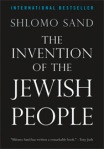Judith Butler and many other members of University of California at Berkeley faculty signed an Open Letter From Concerned Members of the Faculty to Chancellor Robert J. Birgeneau. The letter protested the use of unwarranted police violence against students at a demonstration, in some cases against “defenseless people who had already been pushed to the ground”:
“Instances of unprovoked police brutality would be appalling and objectionable anywhere, but we find it most painful for these events to have taken place on the UC Berkeley campus, given the important tradition of protecting free speech that you, Chancellor Birgeneau, have only very recently defended. Hence we regard with dismay and astonishment your euphemistic reference to these Friday’s violence: “a few members of our campus community may have found themselves in conflict with law enforcement officers.” There is no doubt that our students and colleagues did find themselves subject to unwarranted and illegal police brutality. It is therefore incumbent on the Chancellor of UC Berkeley to condemn such actions unequivocally and to make sure that such actions are subject to comprehensive review and disciplinary action…
We want to underscore how important it is for the campus for you to convene an investigation and to take administrative responsibility for protecting the safety of students as well as their rights of assembly and expression. Friday’s failure to do so is a most painful public display of how far UC Berkeley has strayed from its historical responsibility as a national and international institution pledged to rights of free speech and assembly and to the ideals of social justice. It is surely difficult enough to see our reputation as an excellent and affordable university jeopardized through budget cuts and fee hikes. Must we see as well the dissolution of the ideal of protecting free speech for students for whom the very future of their education is at stake?”

Butler has publicly spoken out against UC Berkeley before.
In Frames of War: When Is Life Grievable? Judith Butler explores the media’s portrayal of state violence, building on her work in Precarious Life: The Power of Mourning and Violence which critiques the use of violence that has emerged as a response to the experience of loss in post-9/11 America.
Listen to Butler, with Simon Critchley and Jacques Rancière, discuss the importance of critical theory to social movements today here. Marking the release of a new set of titles in the acclaimed Radical Thinkers series, as well as publication of their own key texts, three of Verso’s most respected and influential writers met on Friday 23 for the Philosophy Department Thursday Night Workshop Series at the New School in New York
Simon Critchley will be speaking on radical thinking and art at the London launch of set 4 of the Radical Thinkers project at the Tate Britain on November 26th: DON’T LOOK BACK: RADICAL THINKERS AND THE ARTS SINCE 1909.
Read Full Post »






